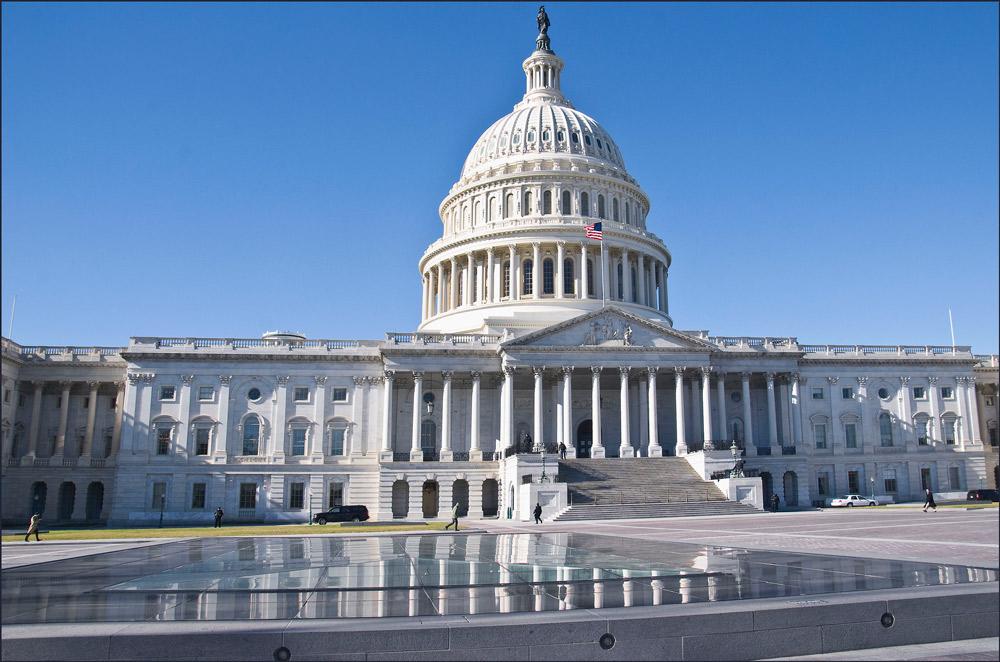US Democrats' blockbuster budget bill could spell big changes for drug prices

The Inflation Reduction Act of 2022, a sweeping measure that now looks likely to be passed through budget reconciliation by Senate Democrats in the US, contains measures intended to greatly reduce US prescription drug prices — but the pharma lobby has reacted strongly against the bill, warning that it will lead to fewer innovative drugs being created, especially for cancer.
Startling news broke Thursday and today that Democrats had convinced Senators Joe Manchin (D-West Virginia) and Krysten Sinema (D-Arizona) to back the Inflation Reduction Act, a multifaceted budget bill that is being noted for its historic scope with regards to combatting climate change. Using a special process called budget reconciliation, the bill can be passed with just 50 votes plus a tiebreaker vote by Vice President Kamala Harris, which means Republican cooperation is not required.
In addition to the climate provisions, however, the bill has a significant effect on prescription drug prices, and according to reports neither Manchin nor Sinema is objecting to these provisions, which are similar but not identical to the ones in the Build Back Better plan which previously passed in the House of Representatives.
Chief among these provisions is that the bill will allow, and indeed require, Medicare, the US's government-run insurance program for older Americans, to negotiate drug prices with pharmaceutical companies in some cases, something it historically has not been allowed to do. Additionally, the bill would require drug companies to pay rebates if drug prices rise faster than inflation, add a $2,000 cap on Medicare Part D out-of-pocket spending and other Part D benefit design changes, expand income eligibility for Medicare's low-income subsidy program, improve access to adult vaccines, and repeal a Trump administration drug rebate rule which eliminated rebates negotiated between drug manufacturers and pharmacy benefit managers (PBMs) or health plan sponsors in Medicare Part D.
The non-partisan Congressional Budget Office estimates that the bill will save Medicare $287 billion over the next 10 years, savings that would be passed along to Medicare beneficiaries.
The Pharmaceutical Research and Manufacturers of America (PhRMA) was quick to denounce the bill, sending a letter to all 100 senators which argues in strong terms that the bill will hurt pharmaceutical innovation.
"Proponents are driving the bill under the guise that it will allow Medicare to 'negotiate' with biopharmaceutical companies. What the bill actually does is give manufacturers non-negotiable ultimatums – accept whatever price the Secretary of Health and Human Services sets, pay a massive excise tax of as much as 95% of a medicine’s sales or remove all of your products from Medicare and Medicaid," states the letter, which was signed by representatives from every major US pharma company. "That’s not negotiation, it’s government price setting. We know from experience what happens when governments set the price of medicines: Breakthrough cures start slipping away. In countries with government price controls, patients have access to just half of medicines launched globally since 2012, compared to 85% in the United States."
The CBO did agree that the bill will negatively impact pharmaceutical innovation, but to a much smaller extent than PhRMA argues. They estimate that the bill would prevent the launch of about 15 drugs over the next 30 years, out of 1,300 expected to come to market in that period. Notably, the bill limits Medicare negotiation to drugs that have been in the market for more than nine years, which proponents argue is plenty of time for drug companies to turn a profit and recoup research and development investments.
Moreover, research by the Kaiser Family Foundation shows that Americans of both parties overwhelmingly support allowing Medicare to negotiate prescription drug prices.













